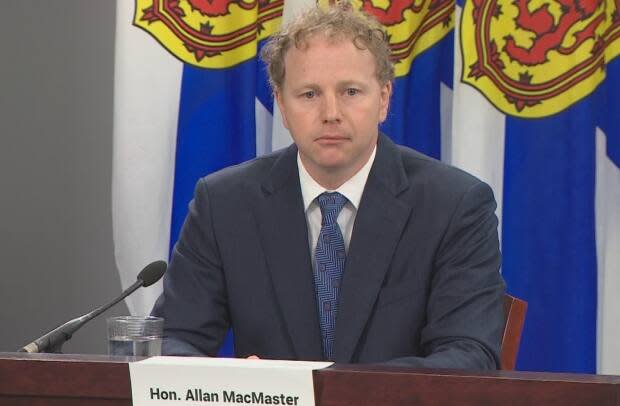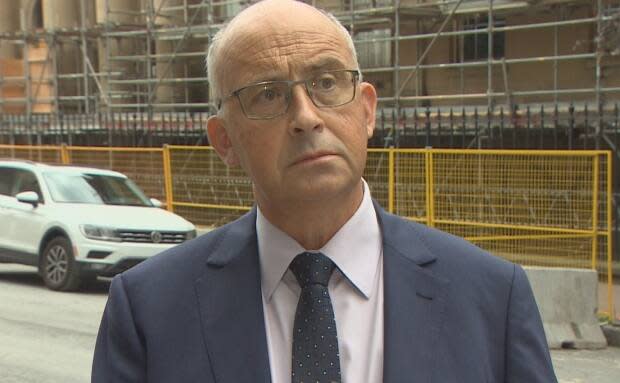Nova Scotia closes the books on 2020-21 as COVID's effect on finances crystalizes

The full weight of the effects of the COVID-19 pandemic on the Nova Scotia government's finances was laid bare on Thursday with the closing of the public accounts for 2020-21.
And while the numbers are every bit as big as most people might expect, officials say the public's willingness to adhere to health protocols helped prevent things from being worse.
"We could have had more extended lockdowns, which could have impacted our economy more greatly," Finance Minister Allan MacMaster told reporters in Halifax.
"But Nova Scotians made sacrifices. They took care of themselves and they took care of each other and, as a result, the economy here restarted more quickly than in some other jurisdictions."
More help if necessary
For the fiscal year ending March 31, 2021, the province posted a deficit of $341.6 million. While that's well off the $55-million surplus estimated when the budget was released, officials note that budget came before the arrival of COVID-19 in the province and its full effects were understood.
Nova Scotia spent a total of $939.7 million in COVID-related supports in 2020-21, with $462 million of that coming from the federal government.
That spending includes millions on capital projects designed to stimulate the economy, as well as on support programs, personal protective equipment and efforts to bolster the health-care system. Compensating doctors to provide virtual care, for example, cost $58.1 million.
MacMaster noted the pandemic isn't over yet, and said the government would step in as necessary to address needs that emerge.
Spending plans for health care won't change
The province ended 2020-21 with a net debt of $16.4 billion and a net debt-to-GDP ratio of 36 per cent. While both of those are well above the estimate when the budget was released, they are lower than where they were at the time of the last financial forecast, further evidence of MacMaster's comments about the province's ability to rebound faster than expected.
The Progressive Conservatives campaigned on a promise to run deficits early in their mandate — they said they'd exceed $1 billion in their first year — on their quest to overhaul the health-care system.
MacMaster said the numbers released Thursday amounted to a new starting point and would not change his government's plans. He said it would become clearer in the coming weeks and months how those plans will improve the health-care system and how they will affect provincial finances.
"And we'll certainly want to be transparent about that, we'll expect the legislature to hold us to account for that, and we expect Nova Scotians to hold us to account for that," he said.
NDP Leader Gary Burrill said the numbers show just how quickly a government can respond when presented with a crisis.

As the pandemic wreaked financial havoc on people and businesses, the province borrowed an additional $1 billion. While it wasn't expected at the time that all that money would be required, finance officials said Thursday there was substantial spending. The NDP pointed out that happened without the level of investment in housing necessary to counterbalance skyrocketing rents and house prices.
As the Tories prepare to work on their promise to improve health care, Burrill said they must do what's necessary on that front while also giving similar attention to the housing crisis gripping the province.
"We're at a moment where there needs to be this kind of focus and urgency on housing that was provided on COVID," Burrill told reporters.
"There's no other way forward and we need to see the government really address this."
MacMaster said his government is committed to finding solutions to the housing file and that it remains an ongoing conversation. Although Premier Tim Houston has said he does not believe rent control is a long-term solution, more recently Housing Minister John Lohr indicated an openness to keeping a rental increase cap in place as an interim measure.
"As solutions are developed for the housing situation, we will take them, we will act on them, and we will be clear about what they will cost," MacMaster said Thursday.
The minister said the public will begin to get more information about his government's financial plans when the September financial forecast update comes later this month for 2021-22.
MORE TOP STORIES

